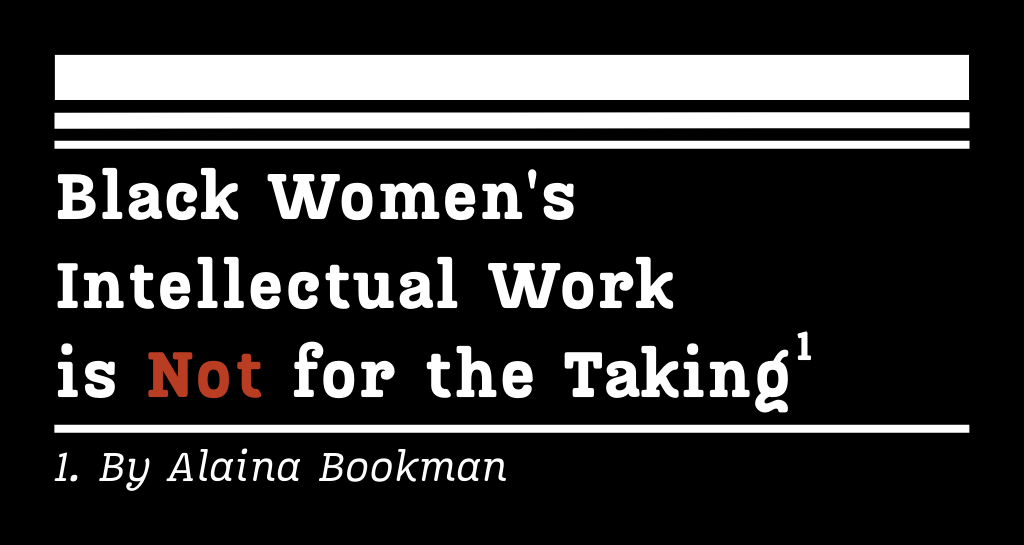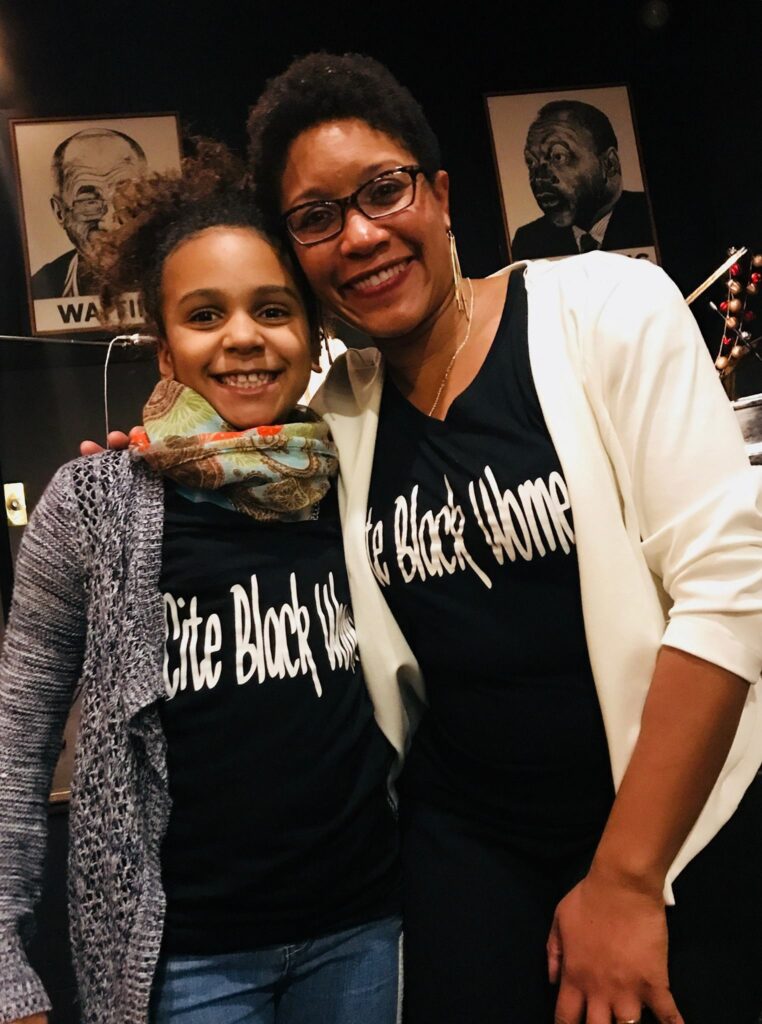
Note: This article was originally published by Life & Letters, the official magazine of the University of Texas at Austin’s College of Letters and Sciences, in January 2023. Some additional illustrations have been added by Not Even Past. The article is reprinted with permission from Life & Letters.
When Christen Smith attended a conference in 2017, she was shocked to see her work presented – plagiarized – by another academic. It was a painful experience of appropriation, and Smith looked for a way to overcome the feelings of erasure.
At a National Women’s Studies Association Conference in 2018, Smith took a stand against her work being used without proper citation by wearing and selling t-shirts printed with the simple phrase “Cite Black Women.” Those t-shirts quickly transformed into a social movement to honor the work of Black women across academia.
“Citing Black women means actually restructuring the way you think. It’s not like this is being built out of thin air. It’s built out of a legacy of struggle and exploration based on Black feminist thought. Citation is not just about bibliography citation; it’s not just about listing; it’s not just about acknowledgments,” Smith said. “Citation is about honoring genealogical legacies and honoring people’s labor. And so when we say cite Black women, we’re talking about honoring Black women’s labor, honoring Black women’s work, honoring Black women’s time and energy.”

Growing up in Washington, D. C., Smith’s family reinforced the value of Black culture and history. When she began her undergraduate studies at Princeton University, her advisor encouraged her to take classes about Black female literature. That introduction to Black feminism ultimately changed the trajectory of Smith’s intellectual and professional career.
Today, as an associate professor of African and African Diaspora Studies and Anthropology and the director of the Center for Women’s and Gender Studies at The University of Texas at Austin, Smith’s work is largely influenced by the work of Black feminist authors and her research in Brazil (she donates the proceeds of her t-shirt sales to Brazilian community schools). Her work explores Black communities’ experiences with gendered violence, particularly state-sanctioned violence in Latin America, and how society simultaneously consumes and exploits Black culture.
Smith’s work with Cite Black Women has expanded far beyond t-shirts. The project is now a campaign to push people to honor Black women’s intellectual production as they would any other group, to cite them as is expected in academic practice, to critically reflect on their everyday practices, and to question how people from varying academic disciplines can incorporate Black women into the core of their work.
“Cite Black Women really grew out of my experiences with patriarchal violence in the academy. We as Black women are vulnerable and our ideas are thought of as viable territories to be colonized,” Smith said.
From its start at the National Women’s Studies Association Conference in 2018, Cite Black Women has developed into a movement that has expanded to social media, a podcast, and a blog. The Cite Black Women podcast features reflections and conversations about acknowledging and centering Black women’s ideas and intellectual contributions inside and outside of academia through citation. The episodes, hosted by Smith, feature conversations with Black women — with backgrounds varying from academia and scholarship to health and wellness — who actively engage in the Cite Black Women community by recognizing and acknowledging the works of Black women transnationally.
“Citation is truly ancestral invocation and refusing to forget those who’ve come before us by saying their names,” Smith said. “I’m not fighting to be on someone’s bibliography. I’m fighting to have my intellectual self respected, and the intellectual work of my foremothers respected, the intellectual work of my sisters and friends respected.”
The impact of Smith’s work is seen across borders as she speaks with women artists, scholars, authors and activists from Latin America about their experiences with appropriation, racial discrimination, and gendered violence within their fields. For Smith, the collaboration of Black women to create the podcasts represents a collective decolonization of their labor.
“The spike in popularity of Cite Black Women really forced me to take pause and say ‘this is no longer about me and my experience,’” Smith said. “We knew it was more than just a slogan.”

Smith’s future projects include creating digital repositories through a collection of oral histories from Black woman anthropologists about their own experiences with appropriation and citation. Smith and her team are building data analyses of citational rates and theoretical analyses of what it means to think about citation as a political and disciplinary practice.
“I’ve gotten emails from all over the country from people who have overhauled their syllabuses, or their library research tools or their classes to follow what Cite Black Women has been doing,” Smith said. “We’re partnering with different groups across many disciplines, way beyond liberal arts, to be able to think through what it looks like to enact change around citational politics in concrete, measurable ways.”
By partnering with other professors, librarians, archivists and activists, the Cite Black Women movement has expanded its reach to motivate people across disciplines to honor the intellectual property of those who historically have been overlooked and whose work has gone uncited.
The views and opinions expressed in this article or video are those of the individual author(s) or presenter(s) and do not necessarily reflect the policy or views of the editors at Not Even Past, the UT Department of History, the University of Texas at Austin, or the UT System Board of Regents. Not Even Past is an online public history magazine rather than a peer-reviewed academic journal. While we make efforts to ensure that factual information in articles was obtained from reliable sources, Not Even Past is not responsible for any errors or omissions.



